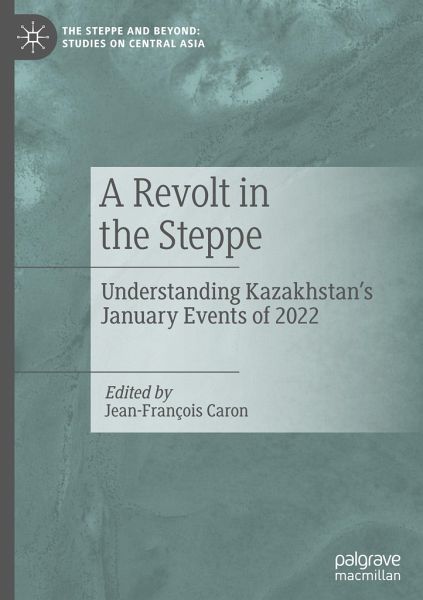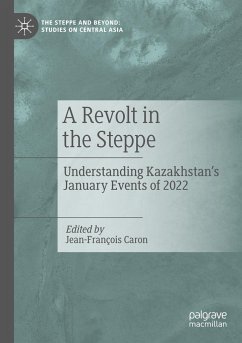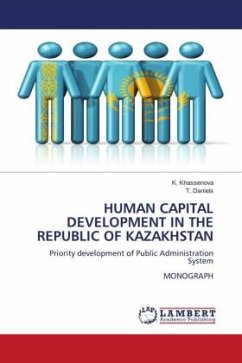
A Revolt in the Steppe
Understanding Kazakhstan's January Events of 2022
Herausgegeben: Caron, Jean-François

PAYBACK Punkte
53 °P sammeln!
This book explores the various ramifications and consequences of the violent civil protests that affected Kazakhstan in January 2022. In this compelling study, the authors examine the underlying social and political tensions that have affected this biggest country of Central Asia, especially since its political transition of 2019 and how the state has managed to justify its actions that led to a return to peace. It also puts in perspective this event in the wider transition affecting Eurasia with the war in Ukraine and how this shift of world politics may impact Kazakhstan that required the su...
This book explores the various ramifications and consequences of the violent civil protests that affected Kazakhstan in January 2022. In this compelling study, the authors examine the underlying social and political tensions that have affected this biggest country of Central Asia, especially since its political transition of 2019 and how the state has managed to justify its actions that led to a return to peace. It also puts in perspective this event in the wider transition affecting Eurasia with the war in Ukraine and how this shift of world politics may impact Kazakhstan that required the support of Russia and the other members of the Collective Security Treaty Organization during these protests. This book will be of value for scholars, journalists and NGOs working on authoritarianism and on Central Asia.














